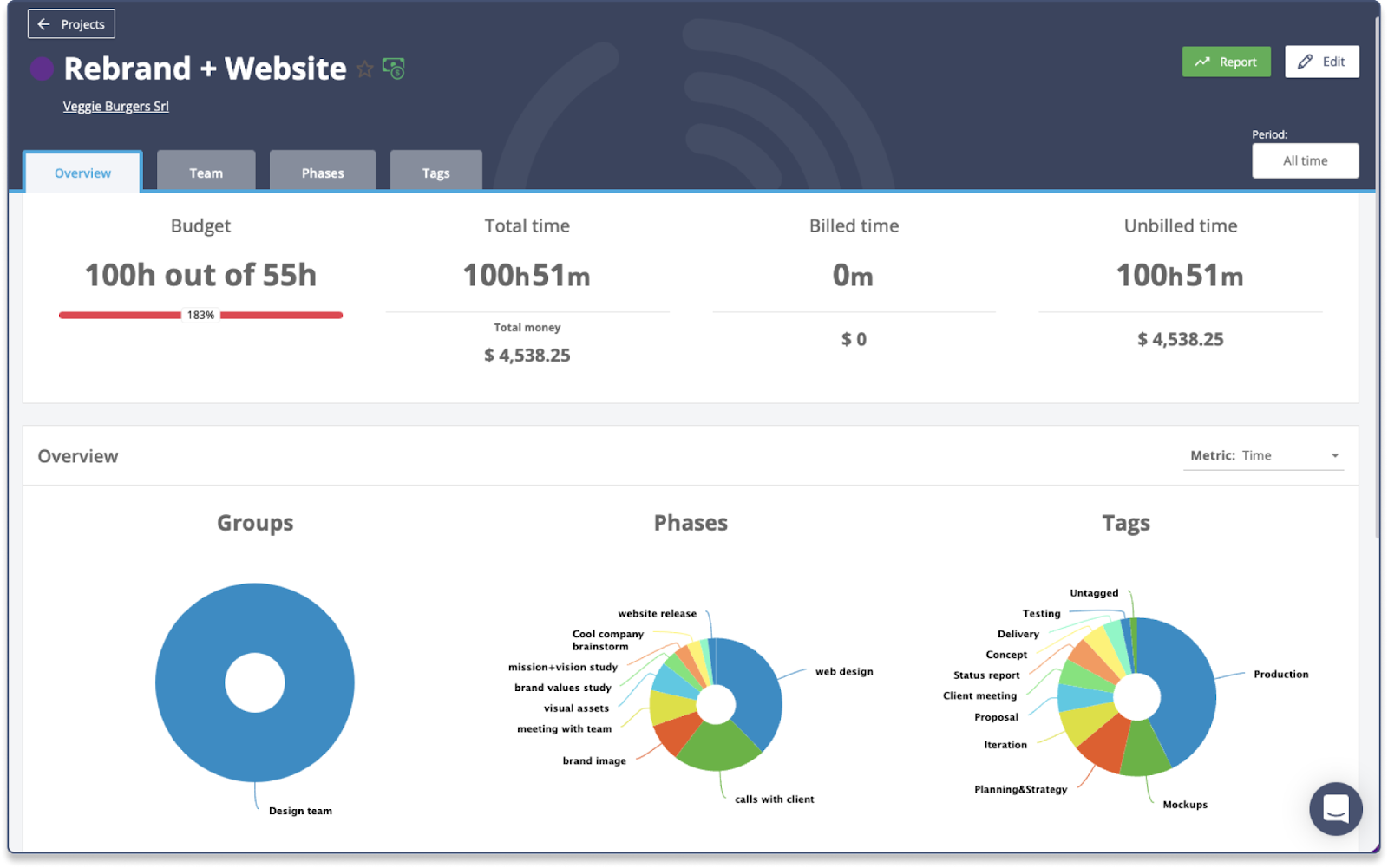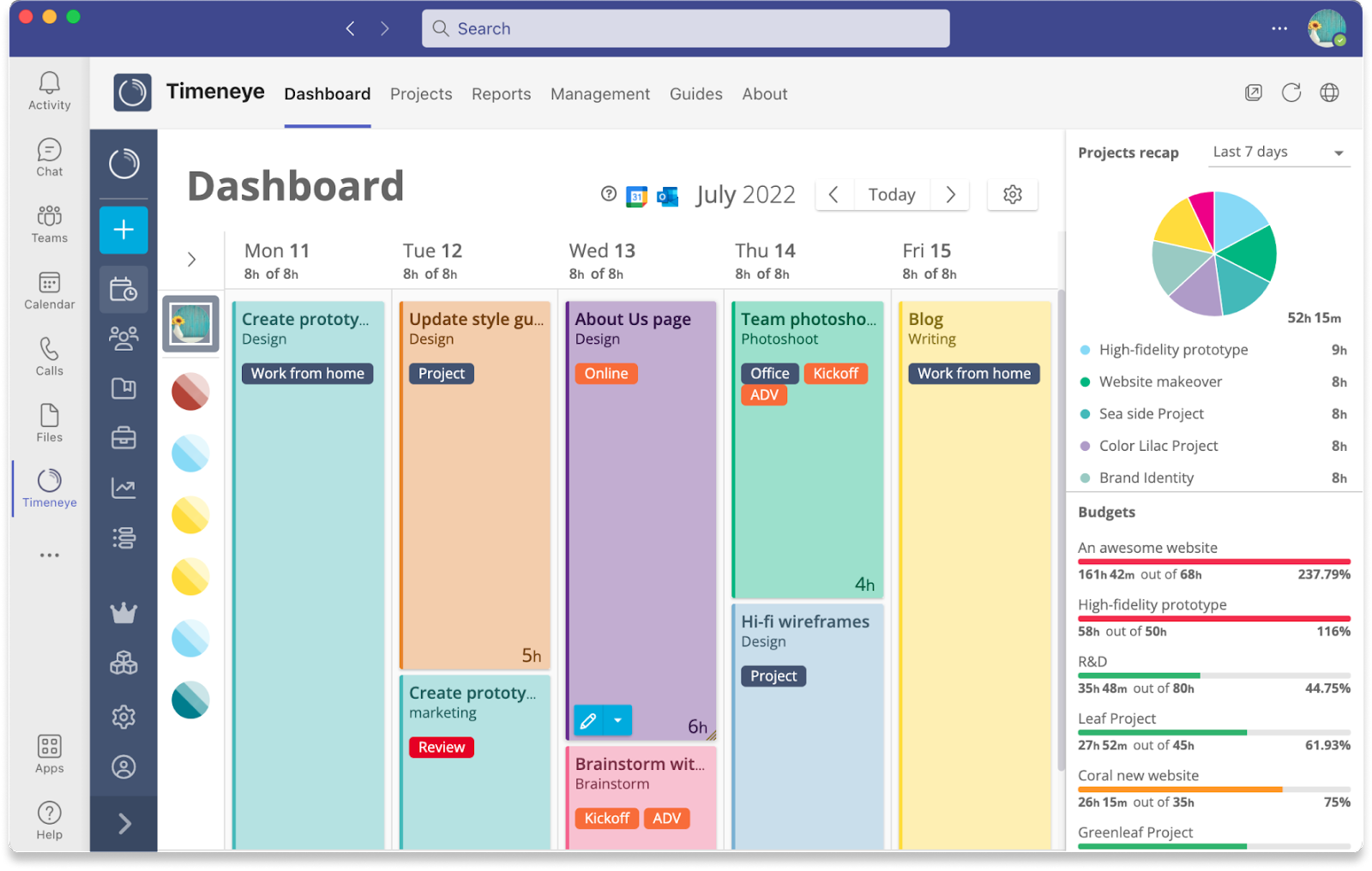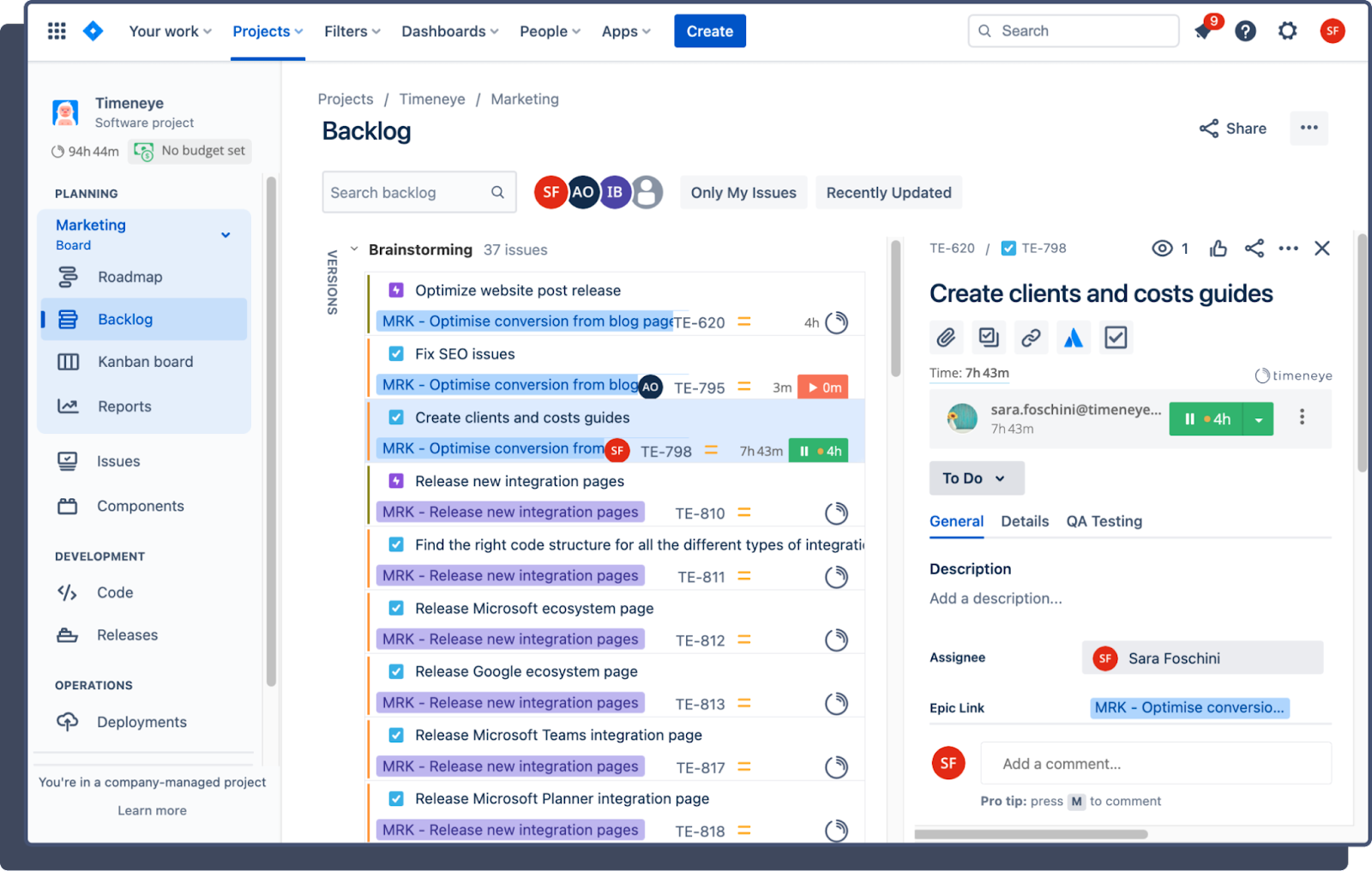5 Agile Project Management Phases to handle projects with flexibility
From the Agile Manifesto to Agile implementation; 5 Agile Project Management phases to manage a project with organization and adaptability


Team management is a manager and leader’s capability to give instructions and lead employees to meet a common goal.
Team management is a must-have skill for a team leader since they have to communicate effectively, give instructions, or delegate tasks to team members without sounding “bossy.”
Managers must develop effective Team Management skills and reach business goals with team members.
We tend to think of team management as the capability managers should have in structured and big companies. Still, it is essential in all-size companies; even freelancers would benefit from it.
Team Management skills focus on effective communication and collaborative problem-solving; every company’s step forward is a whole team’s success.
Human resources and team leaders now understand the importance of building a trust-worthy environment where employees can grow professionally and personally, thanks to constructive feedback and effective communication.
Therefore managers should not just see Team Management as the capacity to convey excellent team performance but as a way to help employees to express their needs and necessities and grow a company.
Effective team management results in employee loyalty and having the company’s best interest at heart.
Team Management is, deservedly, becoming more and more critical for the following reasons:
-It acknowledges a leadership style based on problem solving where managers ask “face-to-face” feedback to employees and are open to suggestions and changes of directions;
–Collaboration and team building are fundamental pillars in which the team leader and team members run together for a common goal which is clearly defined and discussed during the whole project life-cycle;
–Communication does not just include meetings or quarters/semesters feedback but is a regular habit acquired by both professionals: team members and leaders.
Team Management aims to keep communication bidirectional. It is seen as an opportunity for growth and development by the managers who do not feel their leadership is at risk but, instead, welcome their employees’ feedback.
Of course, each team leader has a different approach, and some tend to rely on traditional methods and micromanage surveillance tools to keep an eye on employees’ work. Therefore this behavior tends to stress employees out, making them anxious to get more and more done, which gives them the feeling of burnout.
Good managers have a collaborative and open approach, and because of it, they do not need to implement the company micromanaging activities. Instead, they allocate part of the company’s budget to software, such as team management and time tracking software.
Timeneye is a time tracking tool able to help teams to reach common goals and keep an eye on ongoing projects and other team members’ activities.
With Timeneye, you can track your many projects and split them into different phases to better see how much each step takes and if you and your colleagues are respecting the deadlines.
Implementing a tool such as Timeneye is essential for companies because it helps leaders to easily teamwork and trust their employees; plus, it is a great way to give constructive feedback and improve team performance project after project.
Timeneye is essential for managers first to acquire Team Management skills and to acknowledge how important it is to build trust and structure activities on open communication to reach business goals and team success.
Team leaders and freelancers who collaborate with other professionals should develop team management skills to better work with a group of people and succeed in business and personal life since the two are always more seen together.
Here is a list of tips that might help managers to adopt a more effective team management approach and, if they are not already doing it, assume the following behaviors that might help team members work at their best. At the same time, the whole company meets its business goals.
Managers should remember that they are part of the teamwork and, indeed, they should lead by example every step of the way, from the initial brainstorming to the execution. All of these participate, giving feedback, acknowledging the team’s progress, and providing constructive feedback in case something needs to be going in the right direction.
Timeneye helps managers and team members collaborate since it allows them to split the project into phases, each of which can be taken care of by a different team member. A project phase can also contain team meetings in which employees can discuss which direction to take, and approach the project might take the time that might be necessary, and the related budget.

As already stressed, open communication is key to team management.
Giving context to what managers ask their employees and sharing their opinion while being open to receiving them from others should be seen as team management and an effective leadership style.
Miscommunication is the cause of stress, anxiety, confusion, and misunderstanding for employees who would like to know if their work is respecting the guidelines, what the client is expecting, or if it is going in the right, desired direction.
When communication is lacking, employees feel less involved in the company’s work, negatively impacting their productivity and motivation. It can drive them to look for a better place to feel appreciated.
Timeneye is a time management tool that helps team members to communicate better! It easily integrates with communication and collaborative apps such as Microsoft Teams, Gmail, and Outlook Calendar.
Meetings, calls, and the time spent sending emails is saved and safely stored in the cloud by Timeneye.
Timeneye knows how important open communication is to be good at Team Management!

Remote work is an excellent opportunity for both companies and employees since it is easier for them to find the perfect “working” match without basing the research on geographical locations.
Remote teams have nowadays become the normality, but they might face some difficulties. Communication, task management, and problem-solving are just a few of them.
To overcome slight work difficulties, team leaders have to be good at communication and recording, writing down information in shared documents, and organizing the project plan (possibly in advance) in a visual template, such as Kanban boards.
Not seeing every day, face-to-face, your colleagues or team members does not mean that you can forget to give them feedback.
Constructive feedbacks are essential because they save time and even team members’ motivation since they do not feel wrong or not good enough for not taking the right direction.
Timeneye aims to ease the life of remote teams since it integrates with communication and collaborative apps such as Gmail, Teams, etc., and it also integrates with project management software such as Asana, Basecamp, Trello, CilckUp, and GitLab.

Project management tools, integrated into a time tracker such as Timeneye, allow managers to keep an eye on the projects’ life cycle, on how much time and budget have been already utilized, and how team members integrate and follow each other’s work.
Previously we said that a good leadership style considers team members’ necessities and provides constructive feedback, such as ongoing communication.
Team leaders should remember to set boundaries and, sometimes, be strict in some choices, such as delegating tasks. The risks are that employees tend to interrupt and email managers for every single activity, not allowing them to work on more critical studies and make decisions with a free mind.
It is up to team leaders to be clear in communicating roles, activities to do, and other team members’ responsibilities. Still, it is up to the team members to raise their hands and ask for more in-depth info, extra calls, and meetings only when needed.
Otherwise, the workflow gets continuously interrupted, and continuous interruptions might manifest in a lack of focus.
Team leaders are the ones who should direct employees to do what they like the most, as well as nurture each team member’s talent. It is suitable for the company, which gets the best job from those who love to do that, and it also benefits the employees since they feel appreciated and can grow in their soft and hard skills.
A workplace should not be seen, by managers in the first place, as the environment in which people share their capabilities and skills and then leave to return home.
It should instead be a place where employees can express their personalities and, with time, evolve.
If this does not happen, the employees tend to look for another place where they can feel free to express their other talents, not only the ones they get paid.
Managers must be open to change since it is part of everyday business life.
Risk management implementation is essential for companies to feel ready to surf change. Doing so does not seem like something to run off but, instead, as an ordinary and even necessary condition.
In doing so, the manager has to be the one who takes and explains changes to team members and pushes them, in a calm and easy period for the company and the employees as well, to look and test together new approaches and technologies that might be at use in the next future.
Now that you have had an overview and got tips about how to be good at Team Management, try to implement some of them and notice how your team responds, and the whole company starts to benefit from it.
To better help you do so, give Timeneye a try and start your 30-day free trial now!
From the Agile Manifesto to Agile implementation; 5 Agile Project Management phases to manage a project with organization and adaptability
Project management is hard, but with the right tools, it's more manageable. See how to use MS Teams for project management, in combination with...
Introducing the Direct Manager role in Timeneye's Premium Plan for enhanced team oversight and efficient time and expense management. Learn how to...